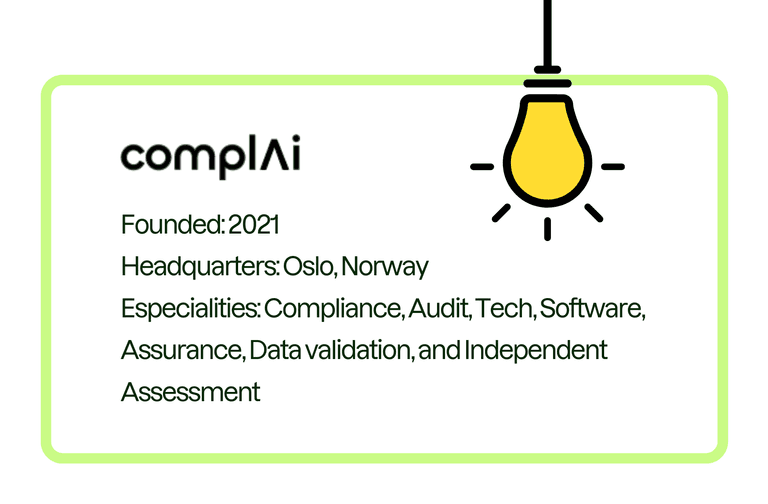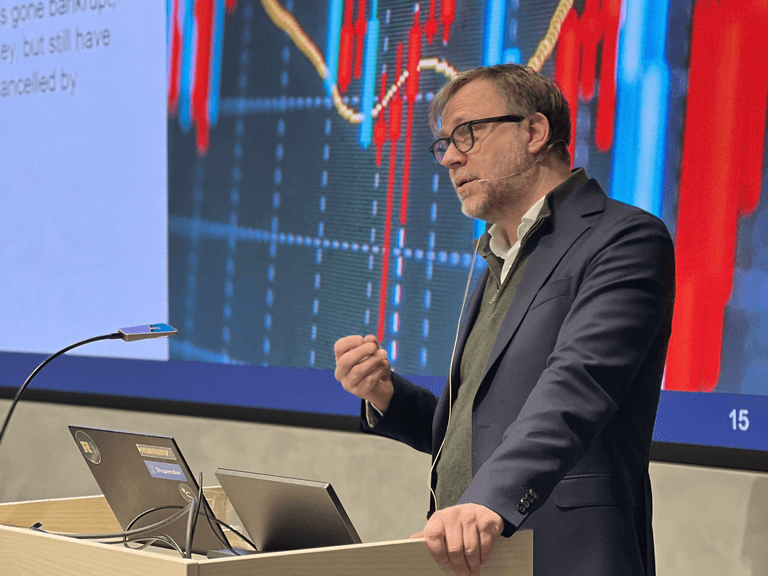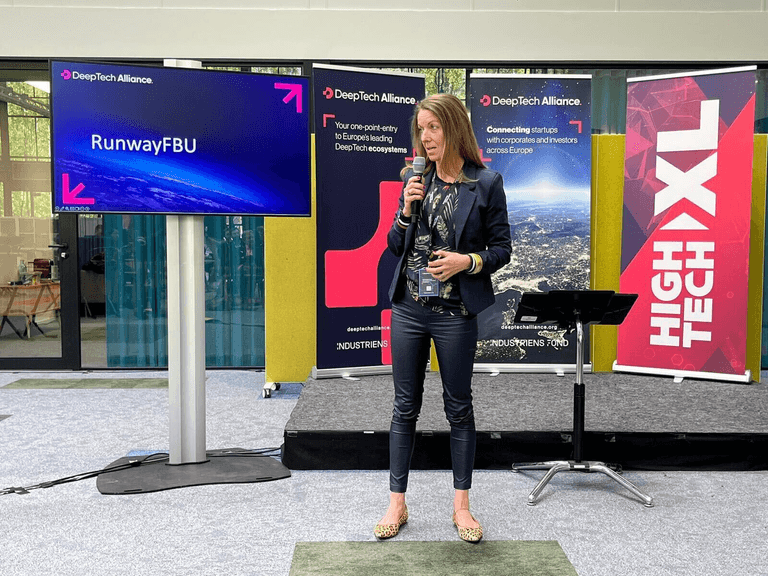Norwegian startup ComplAI has developed a platform revolutionizing supplier compliance. Their AI-powered cloud platform provides enterprises with real-time visibility and control, enabling them to transform compliance into a competitive advantage. Through proactive risk identification and resolution, ComplAI empowers customers to navigate regulatory challenges effectively.

Hanna: What regulation is most important for the industry or companies, and how do you work on it day-to-day?
Jeremy: The big one that's top of mind for almost every company right now is CSRD. It is a great initiative, where you try to standardize within and across industries how companies measure sustainability. In essence, it is similar to how you can compare companies on their P&L, but for sustainability. Right now there are many different voluntary standards out there, out of which none are as standardized or as rigorous as a financial audit.
The crucial thing for CSRD to be a success is data. You need to have trust in the data – you need to have this in place to report in a meaningful way. This is really where ComplAi is focused in the short term.
Then there is also the EU Digital Product Passport. There is a strong investor and consumer push out there to have more transparency on where a product is coming from. It is very easy to understand why – roll back 50 years, it was really hard for consumers to learn anything about where a product came from. Nowadays with social media and the availability of information in general, you can find out a lot more about violations that are going on. And although we can find out about violations, we are not that well equipped to check and trace a product back to where it is coming from at the time of purchase. Consumers today largely have to rely on 3rd party labels when making their purchasing decision. I think – if implemented as planned – the EU Digital Product Passport can help solve some of this and enable consumers to make even more informed decisions than they do today.
“The crucial thing for CSRD to be a success is data. You need to have trust in the data – you need to have this in place to report in a meaningful way.”
— Jeremy Gerst, CEO ComplAI
Hanna: ESG - In your opinion, does regulation and reporting lead to meaningful action and change in behavior - or are companies generally happy once they meet the reporting requirements?
Jeremy: Step 1 is for companies to establish a baseline. Companies are now doing this, either internally or with a consultancy, and performing a gap analysis. Next, they will need to start reporting and be assessed and audited on the CSRD. Then, the idea is, if you get this correct, you can start to identify where you can make tangible improvements. Again, similar in the way you have a standardized way of making your P&L, then you know which metrics you need to improve on and come up with a plan for how to address them.
That being said, asking companies to do the CSRD is great, but it can’t be the only solution. You already see the investor and consumer sentiment pushing for sustainability, but I think it will require some sort of regulatory push on allocation of capital to really push action. At the end of the day, and over the long-term, it is access and pricing of capital which determines the winners and losers. But back to my previous point, for this to happen you need to have trust in the data. Investors, banks, and financial institutions need to be able to really believe that the output is comparable across companies if it is going to meaningfully inform their capital allocation decisions.
Hanna: How can companies leverage AI to comply to regulation?
Jeremy: I think it goes back to what we expect humans to be able to process. I mean, for CSRD reporting, and depending on the size of the organization, we're potentially talking about thousands and thousands of pages of documentation and other data points. I think AI will play a critical role in both helping us distill and pull out the insights, and to help identify anomalies. But humans will still have to be in the loop.
ComplAI's workflow solution is geared towards doing exactly this both in terms of assessing and collecting necessary data on suppliers and in helping companies in their own compliance processes: helping you identify the right passages in the right pages, to make as evidence for the claims you make, and then helping you summarize those passages into a claim. For example, if you get a question from an auditor or a questionnaire from a customer, you can rapidly identify your best evidence and generate a coherent and concise response to that.
For the next Industry Talks, Hanna sat down with the Chief Compliance Officer at Telenor, Silke Hitchke. Coming soon!



